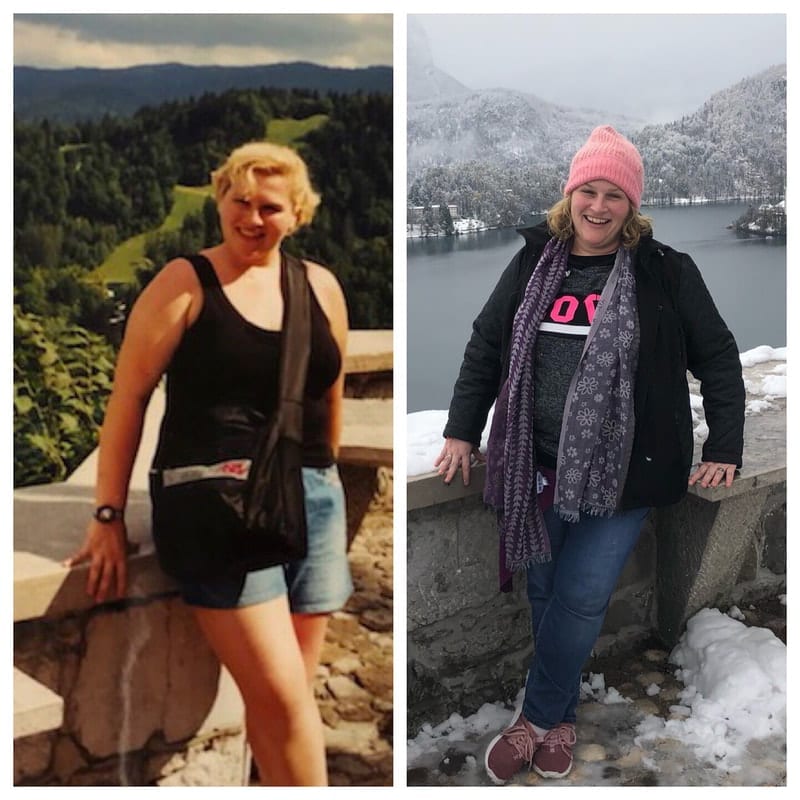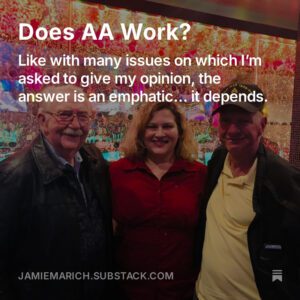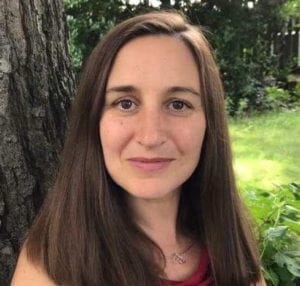The few months I’d spent backpacking through Central and Eastern Europe earlier that year were some of the happiest times in my life to that point. Moreover, getting to connect with my Croatian relatives that summer and in the two previous years I spent traveling and studying in my ancestral homeland was like finding a part of myself I’d been desperate to meet. So over what remained of Thanksgiving weekend I made the arrangements—got my money out of savings, bought a cheap ticket to Prague with the intention of taking the train further south to Croatia and then Hercegovina, and wrote letters explaining to the people in my life that I needed to leave to be okay. I took the gamble, left that Monday, and stayed for almost three years.
I recently recounted the story to one of my oldest and dearest friends. He said in reply, “Jamie, stop saying you ran away to Europe. You moved to Europe.”
I chuckled and sighed when I heard his reframe. Indeed, everything truly wonderful that happened to me—especially finding my recovery and my life’s vocational path—was a direct result of taking that risk to move. In the English language the concept of motivation comes from the Latin word meaning “to move.” So, the very concept of being motivated is rooted in movement. And we don’t give movement (and all the ways we can engage it) enough credit in the change process.
In recovery circles we can be quick to condemn the so-called geographic cure, or the notion that just changing locations is the magic bullet that will make all of your problems disappear. Of course, you take yourself with you wherever you go, and if nothing changes inside then nothing will change overall. Some people would describe what I did by moving to Europe as a geographical cure in the pejorative sense. Even when I share my lead or qualification at a 12-step speaker meeting sometimes I tease myself about it. Janet Leff—my very wise first sponsor and fellow humanitarian aid worker who I met while living in Europe—once made a powerful distinction.
She offered: “Sometimes it’s necessary to make a change—change jobs, change relationships, change cities. We have to ask ourselves though, are we running away from something or running towards something better? Like recovery, our self-dignity, an opportunity that’s better for us and our growth?”
These questions are useful for all of us in recovery as we contemplate making changes, especially if those around us try to shame us for our choices. When I reflect back on those moments in the Fall of 2000, there is no doubt that moving myself in the most radical way possible was needed in order to survive. When I arrived back in Croatia and then to Bosnia-Hercegovina where I settled, I struggled a great deal. It was certainly no geographic cure! I thought that church was the only answer at first and that working for the Catholic Church (which I did) would save me. I thought that I could still drink like a fish and hang out with men who weren’t good for me, as long as I wasn’t popping pills.
And then 12-step recovery found me in the person of Janet Leff, who first befriended me and then asked me to translate a recovery council meeting in the local community for her one day. This powerful system of help, which was devised in my home state of Ohio, found me in the hills of Hercegovina in the years following a brutal civil war in that region. Janet, whose story I tell more fully in Trauma and the Twelve Steps (2012), was there to answer all of my questions I struggled to piece together about my life in chemicals and my emotional demons. A retired clinical social worker, Janet was the first person to give me the framework of unhealed trauma as the main explanation for my mental health and addiction concerns. Because of her commitment to carry a message of recovery to others and lead by example in her life, I’ve been continuously sober since July 2002. There are not enough words to express my gratitude to her and the cosmic flow that brought me to her.
The other layer to this story is how my move to Europe impacted my professional development. If you’re reading this blog on the Institute for Creative Mindfulness site, chances are that you’ve taken a training with me, have read one of my books, or have worked with me in some capacity. What I do today is a direct result of the seeds that Janet and others planted during my work there from 2001-2003. When I moved to Europe, I was starting a graduate degree in history; I took two psychology courses in my undergraduate studies and hated them! So, when both Janet and the priest who was my immediate supervisor suggested that I go to graduate school for clinical counseling, I laughed at them. Janet chuckled in response and said, “Trust me, you’ll be good at it.”
As I reflect back on this time in my life that set the course for the road ahead, I am grateful to be a mover in every sense of the word. Friendships that I made, some very deep, last to this day and continue to shape me. I learned for certain that the world is much bigger and full of wonder than the American bubble of success and failure in which I’d been raised to imprison myself, and there are parts of me to be found everywhere if I’m only brave enough to look. I pray every day that the work I do as I move about the world in the present time honors Janet’s memory.
To be a mover is to embrace a challenge with forward momentum, even if the temptation is to judge yourself as a coward for what may seem like running away. For you, moving halfway around the world may not be required. Although for change to happen, taking actionable steps in the direction of change is an imperative. Movement heals—a simple phrase I often teach in my Dancing Mindfulness expressive arts therapy work. Now, as I spend Thanksgiving weekend of 2018 clean, sober, and mostly sane on holiday in Slovenia and Croatia, two of the places that revived my spirit all those years ago, I realize the deeper truth in this simple teaching.
In memory of Janet Leff (1941-2017)















One Response
Qué pasó con todas tus vivencias en Medjugorje? Has vuelto?